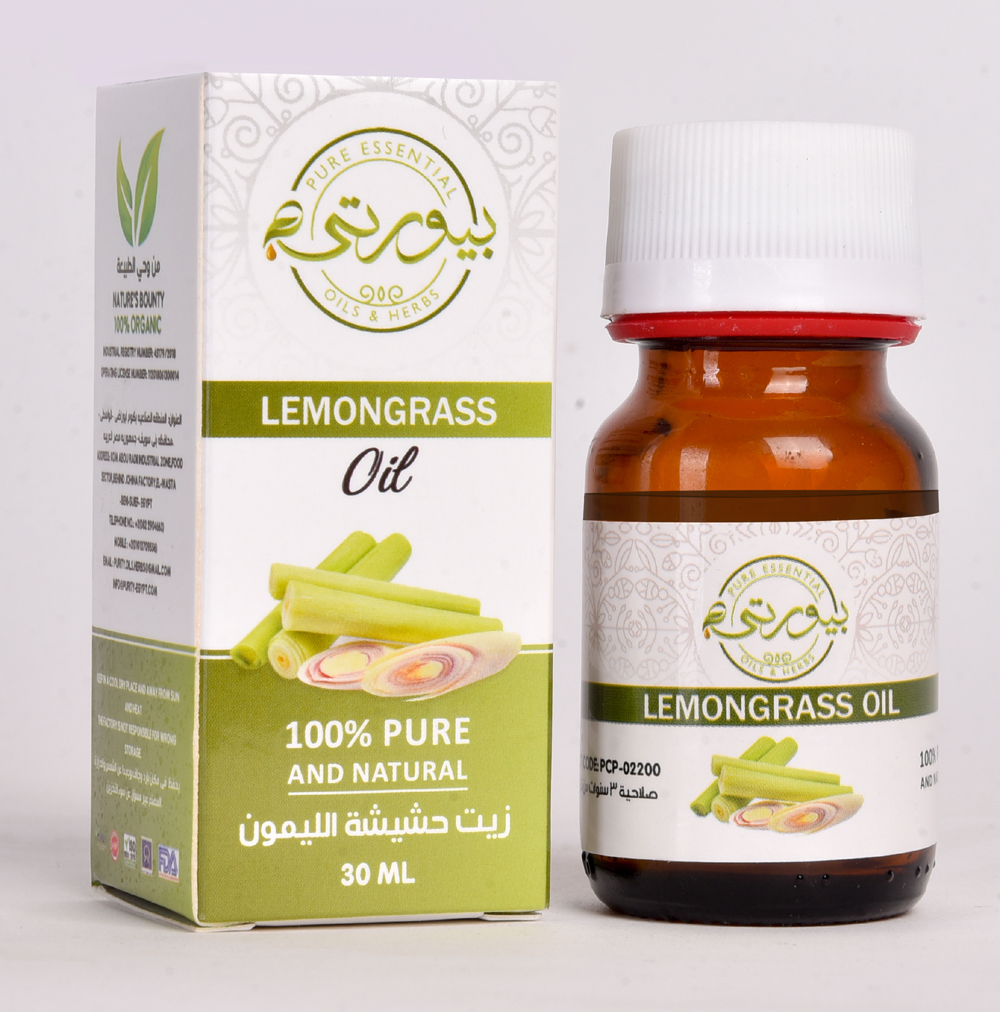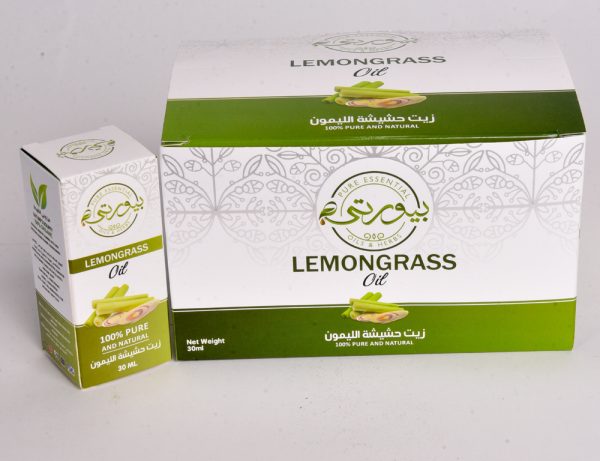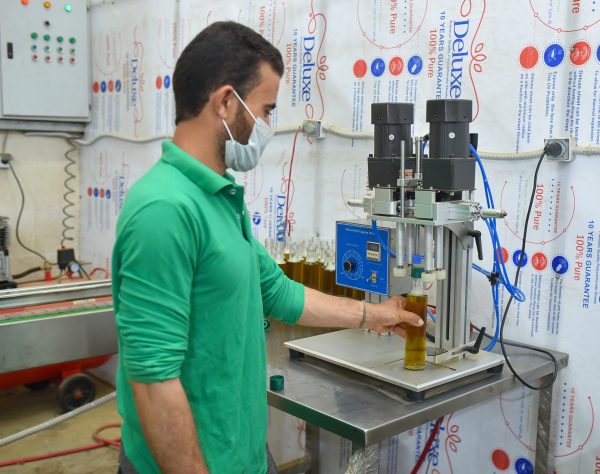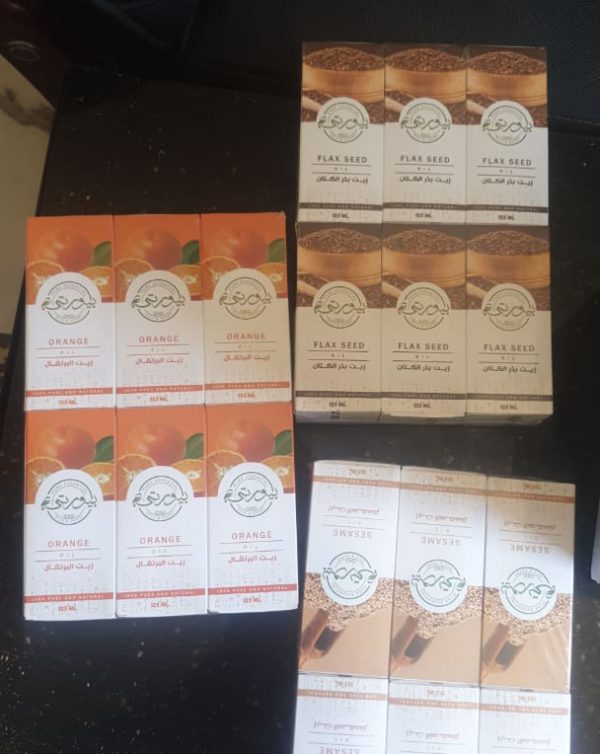Lemongrass Cymbopogon Infused Oil Lemongrass Cymbopogon herb or oil infused in Carrier Oil)
Login to view prices
Lemongrass infused Oil, consists of a carrier oil that has been permeated (“infused”) with Lemongrass herb or mixed with Lemongrass essential oil . The benefit to using an infused oil as opposed to a plain carrier oil is that the infused oil will contain the properties of both the carrier oil and Lemongrass herb and is suitable for direct use for consumer
This Product for Consumer Retail packaging. if you are interested in Bulk Packaging to buy the oil as raw material, Please browse our Raw Materials and B2B Category
What is Infused Oil?
An infused oil, also referred to as a macerated oil, consists of a carrier oil that has been permeated (“infused” or “macerated”) with one or more herbs or the essential oil of that herb. The benefit to using an infused oil as opposed to a plain carrier oil is that the infused oil will contain the properties of both the carrier oil and the herbs or essential oil and is suitable for direct use for consumer without lot of precautions like concentrated essential oils
Some plants do not have much essential oil contained in them, and in those cases, it is rare or impossible to commercially find an essential oil for that plant species. Infusing the herb into a carrier oil, however, can be a suitable way to still use the herb for aromatherapy purposes.
Infused oils generally have an oily feeling that varies depending on the carrier oil used. They also are not as concentrated as essential oils.
====================
What is Lemongrass ?
Lemongrass, also called citronella, is a tall, stalky plant. It has a fresh, lemony aroma and a citrus flavor. It’s a common ingredient in Thai cooking and bug repellent. Lemongrass essential oil is used in aromatherapy to freshen the air, reduce stress, and uplift the mood.
Lemongrass is also used as a folk remedy to promote sleep, relieve pain, and boost immunity. One of the most popular ways to enjoy lemongrass is in water. Keep reading to learn how drinking lemongrass water may help deliver these potential health benefits.
- It has antioxidant properties
According to a study published in the Journal of Agriculture and Food Chemistry, lemongrass contains several antioxidants, which can help scavenge free radicals in your body that may cause disease. Antioxidants of note are chlorogenic acid, isoorientin, and swertiajaponin. These antioxidants may help prevent dysfunction of cells inside your coronary arteries.
- It has antimicrobial properties
Lemongrass water may help treat oral infections and cavities, thanks to its antimicrobial properties. According to a 2012 in vitro study published by the National Institutes of Health. Lemongrass essential oil showed antimicrobial abilities against Streptococcus mutans bacteria, the bacteria most responsible for tooth decay. Further research found lemongrass oil and silver ions may work together against several types of bacteria and fungus in vitro.
- It has anti-inflammatory properties
Inflammation is thought to play a role in many conditions, including heart disease and stroke. According to the Memorial Sloan Kettering Cancer Center, two of the main compounds in lemongrass, citral and geranial, are thought to be responsible for its anti-inflammatory benefits. These compounds are said to help stop the release of certain inflammation-causing markers in your body.
- It may reduce your cancer risk
The citral in lemongrass is also thought to have potent anticancer abilities against some cancer cell lines. Several components of lemongrass help fight cancer. This occurs either by causing cell death directly or boosting your immune system so that your body is better able to fight-off cancer on its own. Lemongrass water is sometimes used as an adjuvant therapy during chemotherapy and radiation. It should only be used under the guidance of an oncologist.
- It may help promote healthy digestion
A cup of lemongrass water is a go-to alternative remedy for upset stomach, stomach cramping, and other digestive problems. A 2012 study on rodents published by the National Institutes of Health showed that lemongrass may also be effective against gastric ulcers. The study found that the essential oil of lemongrass leaves can help protect the stomach lining against damage from aspirin and ethanol. Regular aspirin use is a common cause of gastric ulcers.
- It may act as a diuretic
In the world of natural health, lemongrass is a known diuretic. A diuretic makes you urinate more often, ridding your body of excess fluid and sodium. Diuretics are often prescribed if you have heart failure, liver failure, or edema.
- It may help reduce high systolic blood pressure
In a 2012 observational study, 72 male volunteers were given either lemongrass water or green water to drink. Those who drank the lemongrass water experienced a moderate drop in systolic blood pressure and a mild increase in diastolic blood pressure. They also had a significantly lower heart rate.
Although these findings are exciting if you have high systolic blood pressure, researchers caution that men with heart problems should use lemongrass in moderation. This can help you avoid dangerous drops in heart rate or increased diastolic pressure.
- It may help regulate your cholesterol
High cholesterol may increase your risk of heart attack or stroke. A study published in the Journal of Advanced Pharmaceutical Technology & Research showed that lemongrass oil extract helped to lower cholesterol in animals. The reduction in cholesterol was dependent on the dose.
In 2011, further research on mice confirmed the long-term safety of up to 100mg lemongrass essential oil daily. More research is needed to see if lemongrass water has the same effects as lemongrass oil.
- It may help you lose weight
Lemongrass water is used as a detox water to kick-start your metabolism and help you lose weight. Even so, most research on lemongrass and weight loss is anecdotal, not scientific. Since lemongrass is a natural diuretic, if you drink enough of it, you’re likely to drop some pounds.
In general, replacing soft drinks and other sugar-sweetened drinks in your diet with herbal waters like lemongrass may help you reach your weight loss goals. However, you shouldn’t drink lemongrass water exclusively. This can increase your risk of side effects. Try alternating cups of lemongrass water with water or other unsweetened drinks.
- It may help relieve symptoms of PMS
Lemongrass water is used as a natural remedy for menstrual cramps, bloating, and hot flashes. There isn’t any research specifically on lemongrass and PMS, but, in theory, its stomach-soothing and anti-inflammatory properties may help. Additionally, according to an article published in the Journal of Advanced Pharmaceutical Technology & Research lemongrass oil is useful in helping to cool the body.
===============
What are carrier oils?
Carrier oils and essential oils are made from plants. Carrier oils are used to dilute essential oils and “carry” them to your skin. That’s because essential oils are potent and can cause irritation when applied directly to your skin.
Most carrier oils are unscented or lightly scented and don’t interfere with an essential oil’s therapeutic properties. They may be used alone or with other oils to nourish your skin.
What examples of carrier oils we use to make our infused oils?
1. Coconut oil
Coconut oil is an edible oil made from the meat of mature coconuts. It’s available in refined or unrefined varieties. Unrefined coconut oil comes from fresh coconut meat. It’s not processed with chemicals and retains its coconut aroma and flavor. Refined coconut oil comes from dried coconut meat, also called copra. It’s bleached and deodorized to remove contaminants, as well as the distinct coconut aroma and flavor. Refined coconut isn’t all-natural and isn’t recommended for use as a carrier oil.
Uses: Coconut oil contains skin-nourishing fatty acids and polyphenols, which make it a great carrier oil for massage oils and skin care preparations.
2. Jojoba oil
Jojoba oil comes from the seeds of the jojoba plant. It has a delicate, nutty aroma. Technically, jojoba isn’t an oil, but a wax with powerful moisturizing properties. It’s thought to closely mimic sebum, the skin’s natural oil. Using jojoba oil may help reduce the skin’s oil production in acne-prone people by making the skin think it’s produced enough oil.
Uses: Jojoba oil absorbs easily in the skin and doesn’t clog pores. This makes it a good carrier oil option for massage oils, facial moisturizers, and bath oils.
3. Apricot kernel oil
Apricot kernel oil is made from apricot seeds, also known as kernels. It’s an emollient oil high in fatty acids and vitamin E. It absorbs easily into the skin and has a slightly sweet, nutty scent. You can buy edible apricot kernel oil, or apricot kernel oil for cosmetic use only.
Uses: Apricot kernel oil is thought to help soften and calm irritated, itchy skin. Use it as a carrier oil to make massage oils, bath oil, and hair care preparations.
4. Sweet almond oil
Sweet almond oil has a strong, nutty aroma. It’s an edible oil made from the kernels of sweet almonds. The oil is lightweight and absorbs easily, and is a great moisturizer for dry skin.
It’s also used in general aromatherapy, but its strong scent may mask an essential oil’s aroma.
Uses: Sweet almond oil is one of the most popular carrier oils for skin care. It’s great in massage oils, bath oils, and soaps.
5. Olive oil
Olive oil comes from pressed olives. It’s best known as a healthy, edible oil with a fruity aroma, but it’s also used in aromatherapy as a carrier oil.
Extra-virgin olive oil is the preferred variety for aromatherapy and skin care preparations. Olive oil’s scent may interfere with the scent of some essential oils.
Uses: It’s packed with fatty acids and plant sterols, which make it great for cleansing and moisturizing dry skin. Use olive oil as a carrier oil for massage, facial cleansers, hair care, and homemade soaps.
6. Argan oil
Argan oil is made from kernels found inside the fruit of argan trees, which are native to Morocco. The oil is edible and is traditionally used to nourish the body inside and out. It has a nutty aroma and is rich in vitamins A and E, and monounsaturated fatty acids.
Uses: Argan oil can help treat dry skin and hair, wrinkles, and skin inflammation. This makes it a terrific carrier oil for general skin care and massage oils.
7. Black seed oil
Black seed oil is made from the Nigella sativa plant. Although it’s lesser known than other carrier oils, it’s richTrusted Source with unsaturated and saturated fatty acids. It’s also thought to have anti-inflammatory abilities.
Uses: Black seed oil is often used as a folk remedy to soothe skin conditions including eczema, acne, and psoriasis. With this in mind, it’s a great choice for facial care, massage oils, and general skin care.
=================================================
Quotation:
· Quantity: There minimum order per each packaging type. kindly contact us to know more details and discuss the best options for you
· Specification: 100% natural and Pure quality Organic or Conventional
· Documentation: COA, MSDS, TDS,.. Kindly see more information tab in the product page to see all documents available
· Payment terms: TT in advance to Our bank account
· Lead time: Shipping through 10 days from receipt of the payment.
· Sea Shipping Time: 35 days
· Air shipping time: 10 days
Branding Services
We also can do customized packaging for you to bottle whatever size you like. We can help in designing labels, selecting good bottles, and packaging. We deliver integrated solutions under your brand..
-
Login to view prices
Orange Infused Oil (Natural Orange peels or oil infused in Carrier Oil)
Login to view prices Read more -
Login to view prices
-
Login to view prices
-
Login to view prices
Orange Infused Oil (Natural Orange peels or oil infused in Carrier Oil)
Login to view prices Read more


















